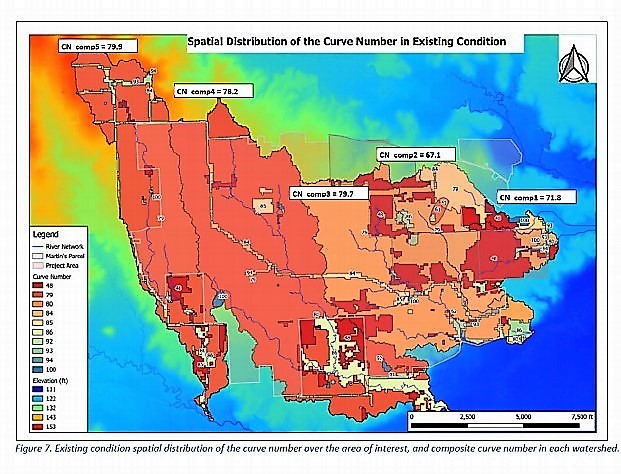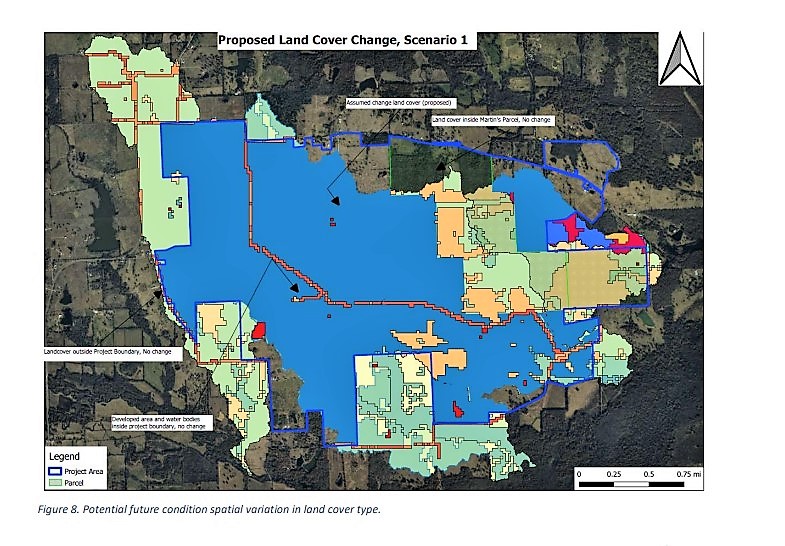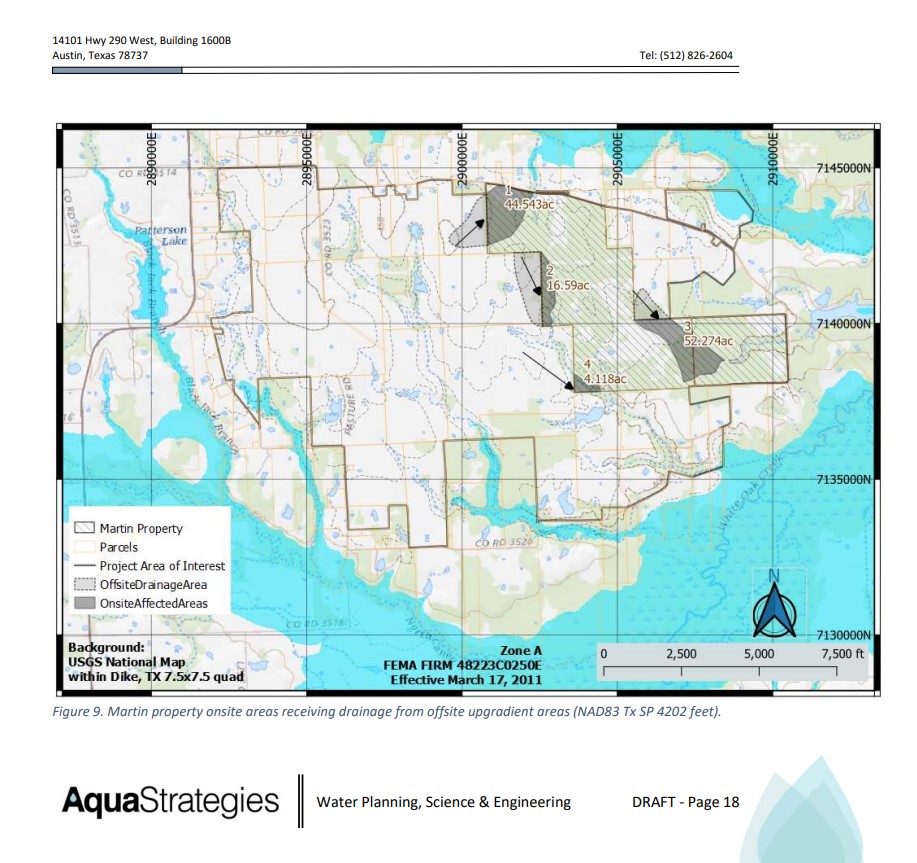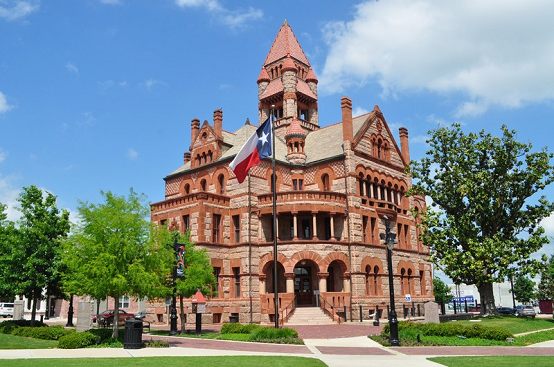Those hoping for a quick decision Monday to Cynthia Martin’s request for a restraining order to temporarily halt construction of the planned Dike solar project were disappointed. Will Biard, 62nd Judicial District Judge, told the parties involved that he would take the matter under advisement so that he gets it right, but expects to make a decision by the end of the week.
The hearing for the temporary restraining order came following a petition filed June 29, 2021, in the 62nd Judicial District against Hopkins County and Hopkins Energy LLC, the solar project planned for construction in Dike. In the 96-page document, Martin asked for “equitable relief and application for temporary restraining order, temporary and permanent injunctive relief” from Hopkins County Energy LLC and Hopkins County.
Representing Cynthia Martin were Chris Bell and Joanne Hatton of Braun & Gresham Attorneys At Law of Dripping Springs. Representing the defendant Hopkins Energy LLC and Hopkins County were John Ginn of Smith McDowell & Ginn Attorneys of Sulphur Springs; Lee Correa-Sheppard of Flowers Davis of Tyler; and Bill Kroger, of Baker Botts.


Points of contention debated Monday morning included whether or not the county had the authority to grant a 381 agreement for a tax incentive to Hopkins Energy LLC, if the 381 economic agreement approved by the county is a Section G or H tax abatement, if proper statutory guidelines were followed and, if not, whether that would that would make the agreement between Hopkins Energy LLC and Hopkins County valid.
Whether the petition fully establishes that the solar project would be a public and private nuisance was debate too. Also discussed were the actual size of the planned solar project, when and if certain permits should have been filed, and surveys regarding flooding and potential damage to Martin’s property from the planned solar project.
Attorneys for the defendants argued that Martin was not accurately represented in the petition because does not live in a permanent residence on the property that allegedly faces up to a 43 percent chance of flooding from storm water runoff and erosion in the flood plain if the Dike solar project is constructed. Martin’s attorneys argued she does reside quite a bit of the time in Dike on family held property, which she has an interest in, and the potential flooding could not only impact that property, but roads as well.
The defendants’ attorneys argued the house is not on the property listed in the petition, that there is no house on Martins’ property and, thus, no potential personal injury, also no probable and irreparable injury for the claim.
The hydrological study Martin commissioned, which evaluates the flood probability of the proposed Dike solar project and is included in the petition, was listed as preliminary when filed, and wasn’t accurate as it encompassed more property than the solar panels are actually expected to be placed on, the attorneys argued for Hopkins Energy LLC. An injunction isn’t appropriate at this point as construction of the project isn’t slated to begin until September; it is “still under development,” thus, certain permits have yet to be obtained, the county and solar project attorneys contended.
Martin’s legal team, however, argued that if Hopkin Energy LLC has a start date (September), the business should have designs and apply for a permit. The information in the report was based on all available information that could be glean as requests for information regarding the specific area of the planned solar project, as well as any engineering reports, were met with claims of proprietary information from the company backing the solar project and were not provided.
Martin, her attorneys argued, should have the right to live not in constant fear of flooding nuisance; thus, a restraining order is appropriate to stop the solar company from further work at the site until the legal issues have been decided.

The defendants’ attorneys argued that alleged violations of local and tax codes were not at issue for the hearing regarding Martin’s request for a temporary 14-day restraining order; local and tax ordinance issues would need to be handled in a separate hearing.
The attorneys debated whether the project falls under subsection g or h of Texas Government Code 381.004. The defendants’ attorney argued that Hopkins Energy LLC would be required to pay their taxes every year, then would receive a program grant payment. Thus, the economic development project determination should be (h) instead of subsection (g). However, Martin’s legal team argued that the Chapter 381 agreement between Hopkins County and Hopkins Energy LLC doesn’t qualify as the county will simply be refunding the exact amount from the tax payment to the business, which doesn’t quality as a grant.
Martin’s lawyers too disputed prior claims made by county officials that the project would create 400 jobs. That, the attorneys claimed, is inaccurate: there could be up to 400 employed during the construction of the solar project, but there would be only two fulltime employees once the project is complete and in operation.
The plaintiff’s attorneys too claimed the officials’ signatures on the agreements between the county and solar group were never notarized, thus, not legal. The reinvestment zone too was created 11 days after the agreement was signed, and should have been established first. No criteria or guidelines were established for improvements, access provisions and property use. Notices regarding planned court action were not properly noted on Commissioners Court agendas to properly let community members know about the intended action.
The court hearing was heard by Judge Will Biard in the second floor courtroom inside Hopkins County Courthouse Monday morning, July 19, 2021.
Judge Biard said he would take the issues under advisement and notify the parties involved by email his decision regarding Cynthia Martin’s petition by the end of the week.







